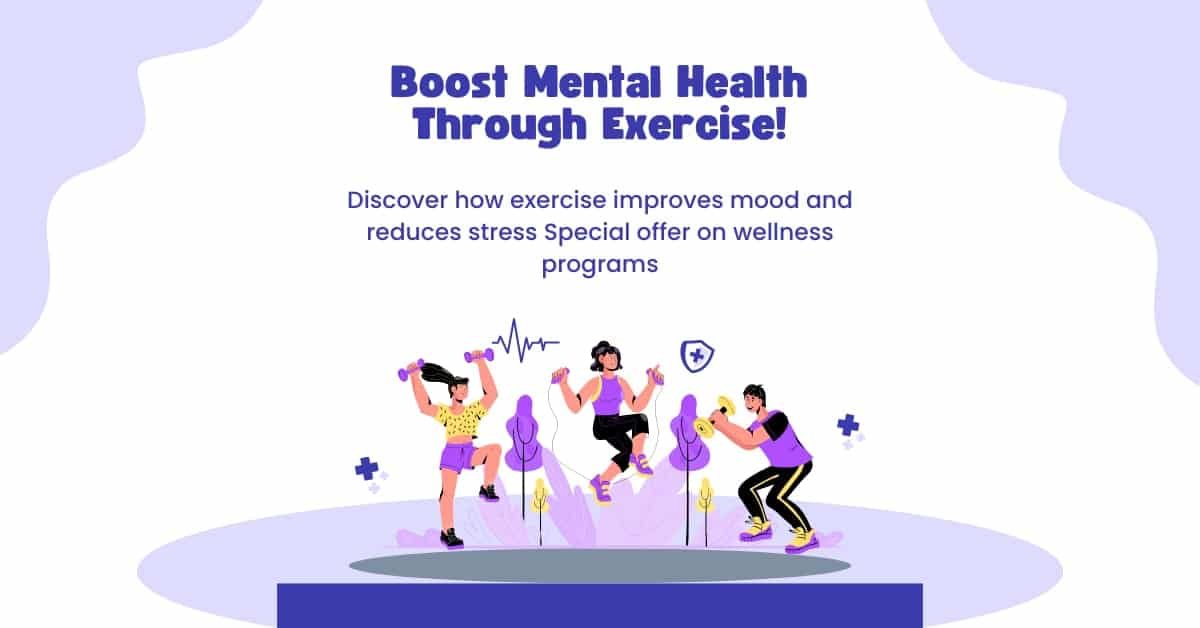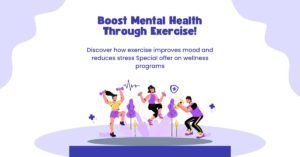Exercise benefits for mental health are profound and well-documented. Engaging in physical activity can significantly improve your mood, reduce anxiety, and enhance overall mental wellness. In this article, we will explore how exercise contributes to mental health, the role of endorphins, and the importance of maintaining a regular fitness routine.
The Connection Between Exercise and Mental Health
When we think about exercise, we often focus on physical benefits, such as weight loss and muscle strength. However, exercise also plays a crucial role in mental health. Regular physical activity can lead to improvements in mood, reduce symptoms of depression, and boost self-esteem.
Studies show that exercise can be as effective as medication for some people in managing depression. This connection highlights the importance of incorporating physical activity into our daily lives for better mental health.
How Exercise Affects Our Mood
One of the main reasons exercise benefits mental health is through the release of endorphins. These are chemicals produced by the body that help alleviate pain and promote feelings of happiness. When we exercise, our bodies release these endorphins, leading to what many people refer to as the “runner’s high.”
This feeling of euphoria can help combat feelings of sadness and anxiety. Even short bouts of physical activity can trigger the release of endorphins, making it easier to feel better quickly.
Managing Depression Through Physical Activity
For those struggling with depression, finding effective management strategies is essential. Exercise can be a powerful tool in this journey. Here are a few ways physical activity helps with depression management:
- Increased Energy Levels: Regular exercise can boost your energy, making it easier to engage in daily activities.
- Improved Sleep: Physical activity often leads to better sleep quality, which is crucial for mental health.
- Social Interaction: Group exercises or classes can provide social support, reducing feelings of isolation.
- Sense of Accomplishment: Achieving fitness goals, no matter how small, can enhance self-esteem and motivate you to continue.
Creating a Fitness Routine
To reap the exercise benefits for mental health, it’s important to establish a fitness routine that works for you. Here are some tips to get started:
- Choose Activities You Enjoy: Whether it’s dancing, swimming, or hiking, find physical activities that you look forward to. This will make it easier to stick to your routine.
- Set Realistic Goals: Start with small, achievable goals. For example, aim for 10 to 15 minutes of exercise a day and gradually increase the duration.
- Mix It Up: Variety is key to keeping your routine exciting. Incorporate different types of exercises, such as cardio, strength training, and flexibility workouts.
- Stay Consistent: Aim to exercise regularly, ideally most days of the week. Consistency helps reinforce the positive effects of exercise on mental health.
Maintaining an Active Lifestyle
An active lifestyle doesn’t have to involve intense workouts at the gym. Simple changes to your daily routine can make a significant difference. Here are some ways to stay active:
- Take Walks: Incorporate walking into your day, whether it’s during lunch breaks or after dinner.
- Use the Stairs: Opt for stairs instead of elevators whenever possible.
- Play: Engage in fun activities with friends or family, like playing sports or going for bike rides.
- Limit Sedentary Time: Try to break up long periods of sitting with short bursts of activity throughout the day.
The Role of Mindfulness in Exercise
Mindfulness can enhance the benefits of physical activity for mental health. Being present while exercising helps you connect with your body and mind, reducing stress and anxiety. Try these mindfulness techniques during your workouts:
- Focus on Your Breathing: Pay attention to your breath as you move, which can help center your thoughts.
- Be Aware of Your Body: Notice how your muscles feel during different exercises. This awareness can create a deeper connection to your workout.
- Practice Gratitude: After exercising, take a moment to appreciate what your body can do. This positive reinforcement can boost your mood.
Conclusion
Exercise benefits for mental health are clear and undeniable. Engaging in regular physical activity can enhance mood, reduce symptoms of depression, and promote an overall sense of well-being. By establishing a fitness routine and maintaining an active lifestyle, you can significantly improve your mental health.
At Passages WV, we believe in the power of mental wellness. Our resources and services support individuals on their journey toward better mental health. Remember, incorporating exercise into your daily life can be a key step in achieving a healthier mind.







